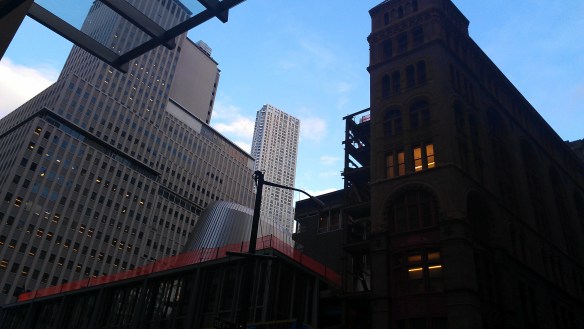Every once in a while, it occurs to me that I’ve been writing for a long while, over 36 years now, writing my novels and screenplays, short stories and articles, and I have yet to get it anywhere of import, nothing but meaningless articles published in community papers.
It has dawned on me that I might not be that good, that, as much as I pretend to deny my desire for vainglory, I crave it as much as the next. It may also be that my writing is bilgewater (my father’s expression), that I drivel on because I am on immature autopilot.
However, my extreme subjectivity understood, I don’t think so. I believe that I understand what’s in a character’s head, what moments mean something and what others do not, what this experiment of ours, humans that is, might or might not be, and that I can express that in words and phrases. My thoughts burn ahead. (Which might explain why I always get fired.)

Anyway, that’s the trickery inside that pushed me on here, ready to take on the big bloggers like Gala Darling and Heather Armstrong and say, well, you know, I might not know marketing and key words but I do know something about…uh, not so sure what that is, but, fucking hell, I have Zake’s Orchestral Studies Collectanae looping in my head, and that has to be worth something.
































